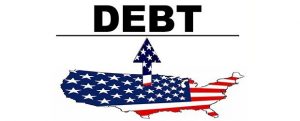Critical Thinking
The Fraud Triangle: Reducing Fraud
Fraud is a serious issue, and while there is no way to guarantee it will not happen, it is important to try to understand why people commit it to try to prevent it. The fraud triangle simplifies the complicated structure of fraud by breaking it down to three elements: pressure, opportunity, and rationalization. When all…
Read MoreEmerging Business Models: Conscious Capitalism and Peace through Commerce
If globalization is considered the most challenging development of modern times then bioterrorism may be its most pressing concern. Increasingly, the connections between health, development and security are becoming clear. The advances in biotechnology, directed toward improving health status, facilitate the reality of bioterrorism, directed toward destroying quality of life and security. Bioterrorism, which involves…
Read MoreEmpiricism and Rationalism in Economics
Empiricism and Rationalism are two schools of philosophy, dating back to the ancient Greeks, dealing with how we obtain our knowledge of the external world. For Empiricists, such as Aristotle, this is best done through the evidence of our senses, that is, through empirical observations and experiments. For Rationalists, such as Plato, however, our senses…
Read MoreEconomic Outlook: Cyclical Recovery, Structural Challenges
The following are my reflections on the economy after attending the Cameron School of Business Advisory Board Lecture Series featuring John Silvia, Chief Economist, Wells Fargo: Recently, there has been talk about the recent recovery of the economy. Everyone is guessing: are we really out of the trough? Is it a steady growth? How does…
Read MoreIs the U.S. National Debt Excessive?
As the recent tapering of the Fed purchases of government and mortgage-backed securities indicates, the efficacy of monetary policy in stimulating the US economy has started to face diminishing returns. Indeed, much of the 3.4 trillion dollars of new money pumped into the economy by the Fed over the past six years in response to…
Read MoreA Meeting of the Minds: Alexis de Tocqueville and Thomas Piketty
Alexis de Tocqueville (1805-1859) is a French historian and political thinker who is best known in the United States for his book Democracy in America, which was published in 1835 following a trip to study the U.S prison system. Coming from Old Europe where wealth inequality was extremely large, he was impressed by the more…
Read MoreA European Perspective on the Future of the Euro Area
A few weeks ago I wrote on this same blog that the main economic problem facing Europe was Immigration. However, I do not want to leave the readers with the impression that the current financial crisis is any less important and critical. Thus, I will now focus on that other problem, as if the first…
Read MoreAre Financial Markets Efficient?
The efficient markets hypothesis (EMH) was developed in the 1960s to rationalize the empirical observation that security prices fluctuate randomly. According to EMH, the random character of security prices is simply a reflection of the fact that security markets are efficient. In efficient markets, new information comes to the market erratically and gets quickly reflected…
Read MoreSpread Spectrum
Spread spectrum is probably today’s most important wireless networking protocol. As unlikely as it might seem, a 26-year-old Hollywood movie star, a screen siren named Miss Hedy Lamarr, invented spread spectrum. In 1942 during World War II, she and a partner (who was a music composer and producer) received a US patent (#2,292,387) for inventing…
Read MoreThe Broken Window Fallacy and Keynesian Economics
Critics of Keynesian economics often use the so-called broken window fallacy, advanced in the 19th century by the French economist Frederick Bastiat, to reject the role of government spending in stabilizing the economy. According to this fallacy, if a hooligan breaks the window of a bakery, the subsequent repair expenditures by the baker will have…
Read More








